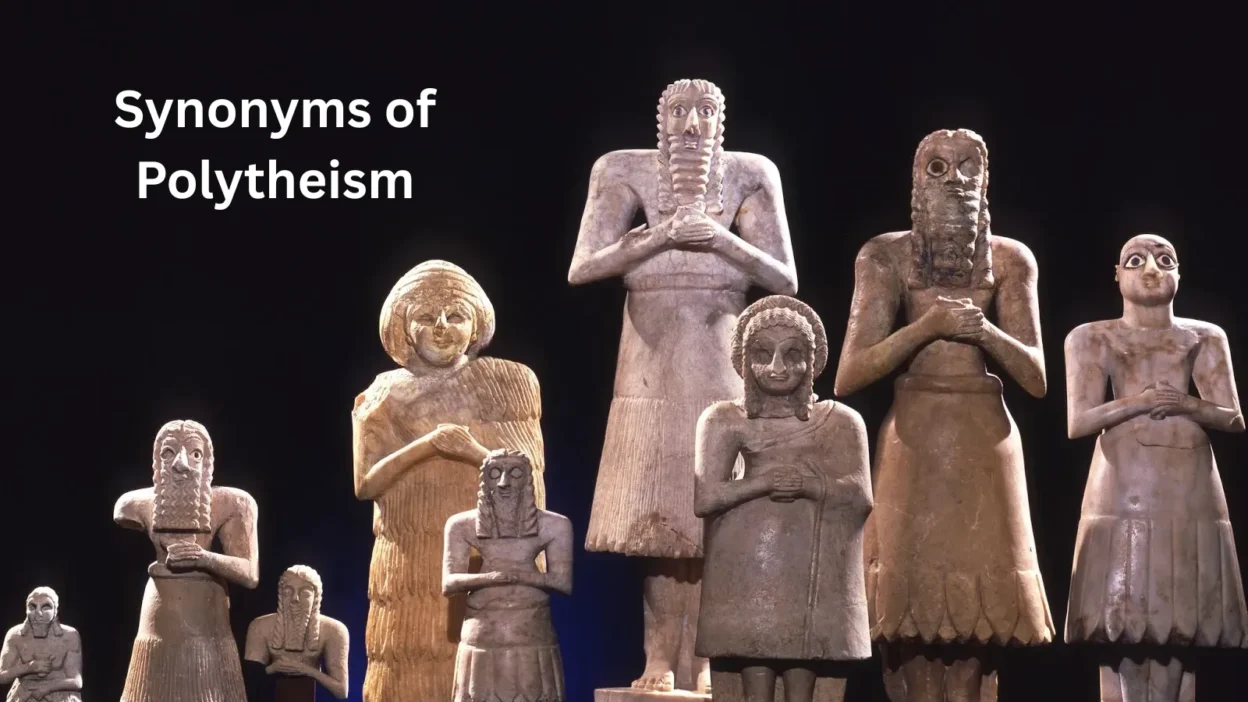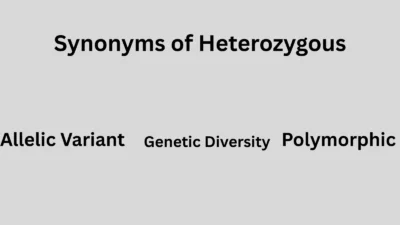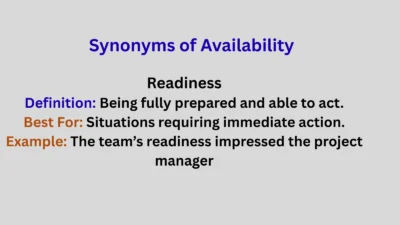When you hear the word polytheism, it usually brings to mind religions or belief systems that worship multiple gods or deities. Unlike monotheism, which focuses on a single divine being, polytheism celebrates a diverse pantheon — gods of thunder, love, war, fertility, and so much more. In this article, we’ll explore the concept and uncover the most relevant synonyms of polytheism used across different contexts.
The concept of polytheism is rich and varied, stretching across cultures and epochs with different nuances. It can be vibrant, community-centered, symbolic, and sometimes even mysterious. Understanding the many synonyms and related terms helps us appreciate these layers more deeply and communicate them with precision.
Let’s dig into the many ways to express polytheism and explore subtle differences in tone, context, and cultural meaning.
What Does Polytheism Really Mean?
Polytheism is the belief in or worship of more than one god. It often implies a complex system of gods, spirits, or divine forces, each with distinct personalities, roles, and stories. Polytheistic religions can be organized with rituals and temples, or more fluid and folk-based.
At the heart of polytheism is the recognition that divinity is multifaceted, and the spiritual world is rich with a variety of sacred beings. When we look for synonyms, we explore words that emphasize different aspects: the multiplicity, cultural flavor, ritual practices, or mythological scope of such beliefs.
30 Synonyms of Polytheism (with Descriptions & Examples)
1. Paganism
Definition: Often refers to polytheistic, nature-based, or pre-Christian religions.
Best For: Historical or cultural contexts, sometimes informal.
Example: Many ancient Europeans practiced paganism, honoring many gods of nature.
2. Henotheism
Definition: Worship of one god without denying the existence of others.
Best For: Nuanced theological discussions.
Example: The ancient society practiced henotheism, focusing devotion on their chief deity.
3. Animism
Definition: Belief that spirits inhabit natural objects and phenomena.
Best For: Indigenous or folk belief contexts.
Example: Animism sees rivers, mountains, and animals as living with a spirit.
4. Mythology
Definition: A body of myths, often about many gods and creation stories.
Best For: Literary, cultural, or religious studies.
Example: Greek mythology is filled with tales of gods, heroes, and monsters.
5. Pantheism
Definition: Belief that God or divinity is identical with the universe.
Best For: Philosophical or spiritual discourse.
Example: Pantheism sees all things as part of a divine whole, blurring distinctions.
6. Polytheistic Religion
Definition: A formal term for religions that worship many gods.
Best For: Academic or neutral contexts.
Example: Hinduism is a major polytheistic religion with diverse deities.
7. Trinitarianism
Definition: Belief in one God in three persons (Father, Son, Holy Spirit).
Best For: Christian theology, as a contrast to polytheism.
Example: While not polytheism, Trinitarianism holds a complex divine unity.
8. Idolatry
Definition: Worship of physical idols or images representing gods.
Best For: Critical or religious debates, sometimes pejorative.
Example: Some monotheistic faiths accuse polytheists of idolatry.
9. Multiplicity of Gods
Definition: Descriptive phrase emphasizing many gods.
Best For: General or informal contexts.
Example: Ancient Egyptians embraced a multiplicity of gods and goddesses.
10. Theism
Definition: Belief in gods or divine beings (can be singular or plural).
Best For: Broad theological contexts.
Example: Polytheism is a branch of theism, distinguished by multiple deities.
11. Folk Religion
Definition: Local, traditional religious beliefs are often polytheistic.
Best For: Anthropology or cultural studies.
Example: Many communities practice folk religion, blending polytheistic beliefs with daily life.
12. Mysticism
Definition: Belief in direct connection with the divine, often involving multiple entities.
Best For: Spiritual or esoteric writings.
Example: Mysticism in polytheistic faiths involves communing with many spirits.
13. Shamanism
Definition: Practices involving mediators between humans and spirits.
Best For: Indigenous or ritual contexts.
Example: Shamanism includes belief in many spirits and gods.
14. Divinism
Definition: A rare term referring to worship of gods.
Best For: Poetic or archaic usage.
Example: The ancient divinism of the region was colorful and complex.
15. Polytheistic Worship
Definition: The act of honoring many gods.
Best For: Religious practice contexts.
Example: The festival was a celebration of polytheistic worship.
16. God-multiplicity
Definition: Informal term emphasizing many gods.
Best For: Casual or explanatory speech.
Example: God-multiplicity was common in early world religions.
17. Theogony
Definition: Origin or genealogy of gods.
Best For: Mythological or academic writing.
Example: Hesiod’s Theogony tells the story of the Greek gods.
18. Deism
Definition: Belief in a creator god but rejecting multiple gods.
Best For: Contrastive theology.
Example: Deism contrasts sharply with polytheism’s many gods.
19. Polytheistic Pantheon
Definition: A specific group or family of gods worshipped together.
Best For: Describing organized polytheistic systems.
Example: The Norse polytheistic pantheon includes Odin, Thor, and Freyja.
20. Religious Pluralism
Definition: Acceptance of multiple religious paths, sometimes including polytheism.
Best For: Interfaith or philosophical discussions.
Example: Religious pluralism allows for the coexistence of monotheism and polytheism.
21. Cultism
Definition: Worship involving particular gods or spirits, sometimes secretive.
Best For: Anthropological or critical writing.
Example: Some cultist practices include polytheistic rituals.
22. Deity Worship
Definition: Honoring gods or divine beings, plural or singular.
Best For: Formal religious contexts.
Example: Deity worship in ancient cultures was predominantly polytheistic.
23. Mythopoeia
Definition: The making or study of myths, often involving many gods.
Best For: Literary or creative contexts.
Example: The fantasy novel’s mythopoeia reflected polytheistic traditions.
24. Polydoxy
Definition: Belief in or worship of many gods (less common).
Best For: Rare or scholarly contexts.
Example: Polydoxy characterized many ancient civilizations’ spiritual life.
25. Pantheonism
Definition: Worship or belief in a pantheon of gods.
Best For: Academic or historical contexts.
Example: Pantheonism shaped ancient Roman religious practices.
26. Spiritual Pluralism
Definition: Belief in many spiritual forces or entities.
Best For: Modern or New Age contexts.
Example: Spiritual pluralism often embraces polytheistic ideas.
27. Idol Worship
Definition: Honoring physical representations of gods.
Best For: Critical religious debate, often monotheistic.
Example: Idol worship is often conflated with polytheism in some religions.
28. Thealogy
Definition: Study of female divine beings, often within polytheism.
Best For: Feminist theology or cultural studies.
Example: Thealogy explores goddesses within polytheistic traditions.
29. Multiple Deity Worship
Definition: A straightforward phrase highlighting many gods.
Best For: Clear and simple explanations.
Example: Multiple deity worship is common in many traditional religions.
30. Cult of Many Gods
Definition: A Religious group devoted to several gods.
Best For: Historical or anthropological descriptions.
Example: The ancient city thrived on its cult of many gods.
Choosing the Right Synonym: Context and Nuance Matter
- Want historical or cultural flavor? Use paganism, folk religion, or the cult of many gods.
- Need technical/theological precision? Try henotheism, polydoxy, or pantheonism.
- For a spiritual or mystical tone? Choose animism, mysticism, or spiritual pluralism.
- When discussing myths or stories? Use mythology, theogony, or mythopoeia.
- For critical or comparative contexts? Words like idolatry or idol worship may appear, though these can carry negative connotations depending on the audience.
Also consider cultural sensitivities:
- Paganism may be embraced proudly in some contexts but used pejoratively in others.
- Animism and shamanism are often associated with indigenous spiritualities and deserve respectful usage.
- Terms like cultism or idolatry can sound judgmental and are best used carefully.
Conclusion:
The concept of polytheism is both broad and deep, stretching across continents and millennia. Choosing the right synonyms of polytheism depends on what you want to highlight — whether it’s the cultural richness, the spiritual worldview, the ritual practices, or the mythological narratives.
By understanding subtle distinctions and emotional tones in these words, you can write with clarity, respect, and impact. So whether you’re telling stories of ancient gods, analyzing spiritual systems, or exploring belief philosophies, your vocabulary can be as rich as the many gods it describes.
Go forth and celebrate the diversity of divine belief with your newly unearthed linguistic treasures!




